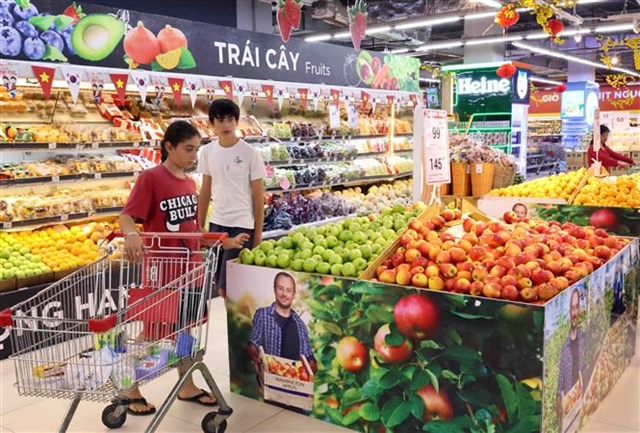Gaining a firm foothold in the domestic market of more than 100 million people is critically important to businesses as the domestic market, which, if properly leveraged, could help offset the decline in export orders.

HÀ NỘI — Việt Nam is focusing on boosting domestic consumption and diversifying export markets to ensure sustainable growth in response to risks of high tariffs in major markets such as the US and Europe.
Nguyễn Anh Đức, chairman of the Association of Vietnam Retailers (AVR), cited the National Statistics Office as reporting that domestic retail sales and consumer service revenue reached over VNĐ1.7 quadrillion (US$65 billion) in the first quarter of 2025, up 9.9 per cent year-on-year, with food consumption making up the most – 35,7 per cent.
He said that gaining a firm foothold in the domestic market of more than 100 million people is critically important to businesses. The figures highlight the significant potential of the domestic market, which, if properly leveraged, could help offset the decline in export orders.
At the same time, efforts to diversify export destinations are being intensified as risks could be mitigated amid the spread of trade protectionism worldwide.
Pablo Arancibia Salazar, a trade representative from Chile's Export Promotion Bureau (ProChile), noted South America, with a combined GDP of $4 trillion and a population of 431 million, presents a highly attractive market for Vietnamese products such as aquatic products, wood products, coffee, rice, and cement, all of which are well-received by local consumers.
In Chile alone, Việt Nam is currently the 12th largest goods supplier, with exports valued at $1.4 billion. Expanding further into the Chilean market was suggested as an opportunity that merits serious consideration.
Meanwhile, Islamic markets were also identified as promising export destinations, albeit strict standards, particularly for Halal certification. In 2024, Việt Nam's cashew industry exported 700,000 tonnes of kernels worth $3.8 billion, with most shipments meeting Halal and other quality management certificates.
Halal-certified agricultural products of Việt Nam hold a special advantage to expand their global market share. The Halal market is extremely large, projected to grow to $10 trillion by 2030, with an annual growth rate of some 5.5 per cent, said Vice Chairman of the Vietnam Cashew Association ,Trần Văn Hiệp.
To support businesses, proposals have been made for continuing financial assistance, sustaining the 2 per cent cut in the value added tax on essential consumer goods, and devising strong-enough incentives to attractive investment in developing regional-level distribution centres to connect cooperatives and small businesses with supermarkets and convenience stores, thus reducing logistics costs and promoting Vietnamese brands.
At a meeting with Việt Nam's trade offices abroad earlier this month, Deputy Minister of Industry and Trade Nguyễn Sinh Nhật Tân said the ministry is building a network for helping Vietnamese enterprises access emerging markets, including Halal markets, aiming to reduce dependence on several major markets and enhance resilience against global trade fluctuations. — VNS





